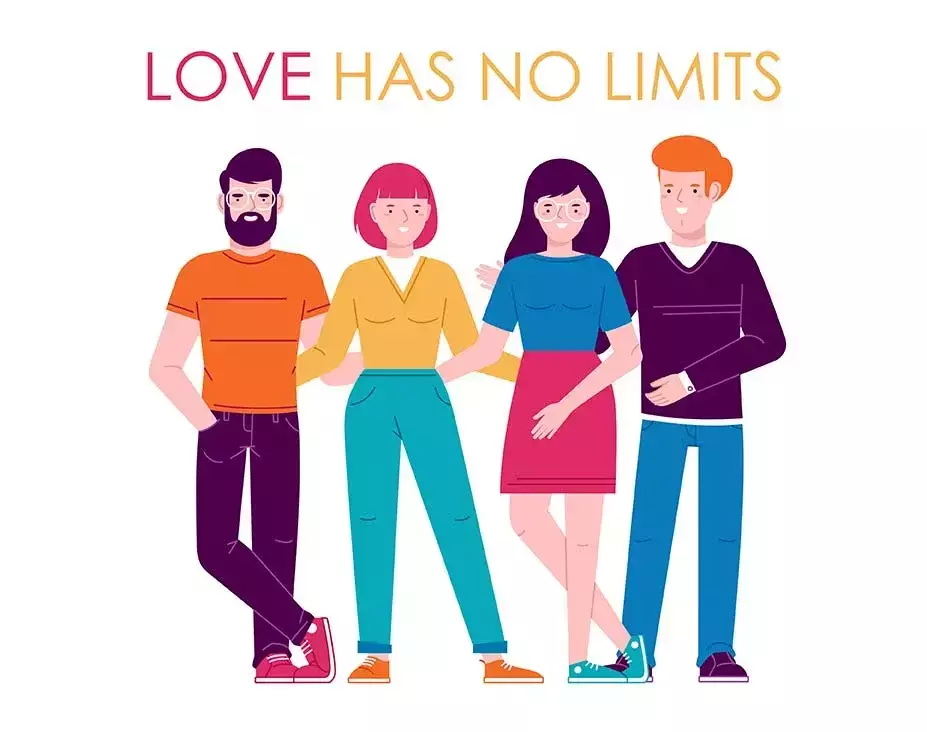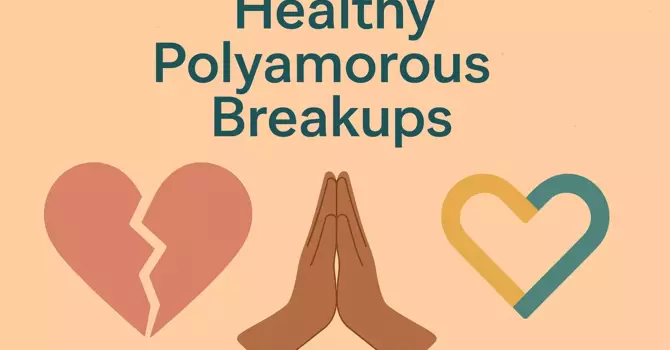
Stepping into ethical non-monogamy (ENM), consensual non-monogamy (CNM), or polyamory after beginning as a monogamous couple can feel exciting, intimidating, and complicated—often all at the same time. Many couples explore openness because of identity shifts, curiosity, mismatched desires, personal growth, or a desire for more authentic connection. But when you’ve built your relationship on monogamy, changing the structure can bring up tenderness, fear, and questions you may have never imagined asking.
If you’re considering opening your relationship, you’re not alone. Many long-term couples eventually explore some form of openness, and when done thoughtfully, it can strengthen communication, foster deeper emotional honesty, and bring more resilience to your partnership.
Below is a compassionate, practical guide to help you enter ENM, CNM, or polyamory in a grounded and connected way.
Start with Why: Understanding the Motivation
Before jumping into rules or logistics, slow down and reflect on why openness is coming up at this point in your relationship. Some common reasons include:
-
One partner discovering new parts of their identity
-
A desire for more sexual exploration
-
Wanting more emotional or romantic connections
-
Mismatched libidos or intimacy needs
-
Healing from old relational patterns
-
Wanting a structure that feels more aligned with your values
-
Simply feeling “called” toward polyamory as an orientation, not a choice
There’s no right or wrong reason. What matters is honesty—with yourself and with your partner.
A helpful conversation starter:
“What need, desire, or identity shift is bringing this up for you?”
Talk About Feelings Before Rules
Many couples skip straight to logistics: schedules, do’s and don’ts, boundaries, “you can do X but not Y,” etc. While these conversations matter, they shouldn’t come first.
Opening a relationship touches on:
-
Attachment patterns
-
Fears of abandonment
-
Jealousy
-
Past wounds
-
Communication styles
-
Expectations around love and connection
Before anything else, create space to name the emotions. This helps you move with clarity instead of fear.
A few helpful prompts:
-
What excites you about opening up?
-
What scares you?
-
What parts of our relationship feel secure?
-
Where do you need more reassurance?
Approaching this like you’re on the same team—not negotiating against each other—builds a stronger foundation.
Go Slower Than You Think You Need To
Opening a monogamous relationship is not a race. Couples who navigate the transition successfully tend to make gradual, intentional shifts rather than jumping in all at once.
The pace might look like:
-
Reading, talking, learning
-
Naming boundaries and needs
-
Exploring fantasies or conversations together
-
Identifying what kind of ENM feels right (swinging, polyamory, parallel, garden-variety open, etc.)
-
Trying one small step
-
Checking in afterward
You can always open further later. You can’t always repair what’s been rushed.
Redefine “Security” Together
In monogamy, many people rely on exclusivity as the primary marker of security. In ENM or polyamory, security shifts toward:
-
Consistent communication
-
Emotional transparency
-
Predictability
-
Clear agreements
-
Reassurance
-
Repair when conflict happens
-
Trust built through action
This doesn’t erase jealousy or discomfort—it just means you approach those feelings together instead of avoiding them.
Jealousy Doesn’t Mean You’re Not Cut Out for ENM
Jealousy is a normal human emotion. It isn’t a sign that ENM won’t work or that something is “wrong” with you. What matters is how you treat jealousy: as a cue for conversation, not a crisis.
Ask yourself:
-
What need or fear is underneath this feeling?
-
What reassurance would help me feel grounded?
-
How can I communicate this without blame?
Many people find that working through jealousy actually improves self-esteem and relationship strength.
Create Agreements—Not Punitive Rules
Agreements should be:
-
Collaborative
-
Flexible
-
Revisited regularly
-
Designed to protect the relationship, not control behavior
Examples of healthy agreements include:
-
How often you’ll check in with each other
-
How new partners will be communicated about
-
Safety/sexual health practices
-
Time boundaries
-
What types of connections you’re both comfortable exploring
Remember: agreements are tools, not traps.
Seek Support When Needed
Opening a relationship often brings up layers of identity, attachment, sexuality, and communication patterns. Working with a queer-affirming, kink-aware, poly-knowledgeable therapist can make the transition feel safer and more grounded.
Therapy can help you:
-
Understand fears and insecurities
-
Strengthen communication
-
Navigate jealousy
-
Clarify boundaries
-
Explore identity shifts
-
Build relationship resilience
You don’t have to figure this out alone.
Revisit, Revise, Repeat
ENM and polyamory aren’t static—they’re living systems that evolve as you evolve. What works at the beginning may shift as partners change, new connections form, or needs grow.
Regularly ask each other:
-
What’s working?
-
What isn’t?
-
What needs to change?
-
How do we stay connected as we grow?
Growth doesn’t mean the relationship is failing. It means you’re adapting and deepening.
Final Thoughts: Openness Begins With You
Moving from monogamy into ENM or polyamory is a big transition, but it doesn’t have to be destabilizing. With honesty, intentional communication, emotional self-awareness, and mutual care, your relationship can shift in ways that feel expansive rather than threatening.
Openness isn’t just about new partners—it’s about opening to yourself, your partner, and deeper authenticity.
If you and your partner are exploring these questions and want guidance, our therapists at Inclusive Therapy Group are affirming, experienced, and ready to support you.
Book a session now to get the support you need.



